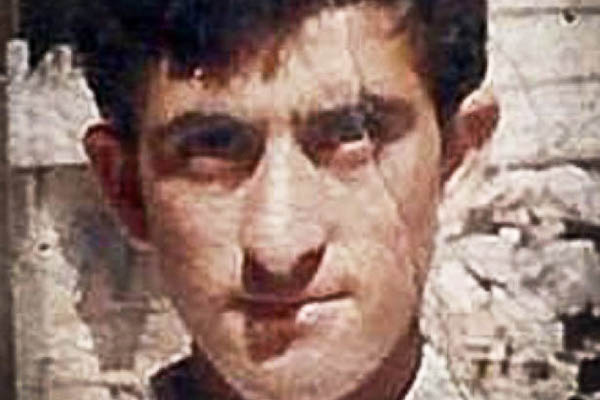
Courtesy Reprieve
Supreme Court to determine convicted killer’s age at time of sentencing amid criticism from rights groups.
The Supreme Court on Tuesday granted a convicted killer a last-minute stay of execution to examine claims he was a juvenile when the crime was committed, in a case that has drawn criticism from rights groups and the U.N.
The reprieve for Shafqat Hussain, sentenced to hang for killing a seven-year-old boy in Karachi in 2004, came just hours before he was due to face the gallows around dawn at a prison in the city. It was his fourth stay of execution in five months.
His case has drawn international attention as his lawyers and family claim he was under 18 at the time of the killing, and therefore is not eligible for execution under Pakistani law. They also claim he was tortured into confessing.
Rights groups, including anti-death penalty campaigners Reprieve and Amnesty International, had pleaded desperately with the government not to carry out the execution. Southern Sindh province prisons inspector Nusrat Manggan confirmed early Tuesday that the hanging, first scheduled for January, had once again been postponed.
Hussain’s brother Gul Zaman, who waited anxiously outside the prison for official confirmation after hearing through local media that his brother’s life had once again been spared, was overjoyed with the news. “It’s all because of media and rights groups who fought for my brother,” said Zaman.
The Supreme Court confirmed it has set a hearing to examine the questions around Hussain’s age, which his supporters have put at 14 or 15 at the time of the offence. “The hearing is set for today [Tuesday] under a bench headed by the Chief Justice of Supreme Court Justice Nasir-ul-Mulk,” said a senior court official. “The honorable judges will hear the petition to stay the execution of Shafqat Hussain,” he added.
Hussain’s true age has proved difficult to ascertain—exact birth records are not always kept in rural parts of Pakistan, particularly for people from poor families like Hussain’s. A birth certificate circulated in the media several months ago, but it appeared to have been issued only in December and Interior Minister Chaudhry Ali Nisar Khan said there was no proof of its authenticity.
The Federal Investigation Agency carried out a probe into his age earlier this year and found he was an adult at the time of his conviction—though the results have not been published officially and Hussain’s supporters say the investigation was flawed.
In an open letter on Sunday, Amnesty International, Human Rights Watch and Reprieve urged President Mamnoon Hussain to grant Hussain clemency. The letter said Hussain had been coerced into confessing with beatings, electric shocks and cigarette burns. “Ten years later, Shafqat still bears the physical and psychological scars from the torture,” the letter said. The campaigners also said Hussain’s lawyer did an inadequate job at his trial, failing to bring up important evidence or raise the question of his age.
Pakistan has hanged more than 130 convicts since restarting executions in December after Taliban militants murdered more than 150 people at a school, most of them children. A moratorium on the death penalty had been in force since 2008, and its end angered rights activists and alarmed some foreign countries.
The Hussain case has drawn particular concern, with a panel of U.N. rights experts calling on Friday for his hanging to be halted. Hussain was working as a watchman in Karachi in 2004 when a seven-year-old boy went missing from the neighborhood. A few days later the boy’s family received calls from Hussain’s mobile demanding a ransom of half a million rupees, according to legal papers.
Hussain was arrested and admitted kidnapping and killing him, but later withdrew his confession, saying he had made it under duress.
